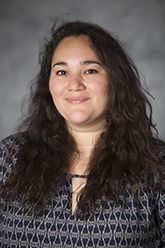
Design
We bring evidence-based models and innovative solutions to life.

May 20, 2019
JFF designs place-based strategies to advance economic opportunity through activation of cross-sector networks and an unwavering commitment to diversity, equity, and inclusion.
While the economy is working for some, many people, especially those within historically marginalized groups, aren’t benefitting. Across the country, many states, regions, and local communities are struggling economically, while others prosper. Rising income inequality, wage stagnation, and disparities in health and housing limit opportunities to learn, work, and gain economic mobility. To make matters worse, communities without skilled workers can’t attract the high-quality jobs, impactful investments, or new businesses they need to grow, perpetuating a cycle of underemployment and financial insecurity.
We can have an economy that works for everyone.
But it doesn’t have to be this way: We can have an economy that works for everyone. Americans deserve inclusive economic development—the creation of an equitable economy that everyone can contribute to and benefit from, regardless of where you are from or who you are.
Our Approach: A New Way of Spurring Economic Development
JFF focuses on building resilience and advancing shared prosperity in communities. We work in regions in California and across the country to co-design strategies that recognize the interdependence of people, places, and economic development in affecting an individual’s economic mobility.
We believe in the following principles:

We use these categories to organize our approach to inclusive regional economic development (IRED):
The Future Ready California Network is an open learning community of leaders working across institutional, regional, and sectoral boundaries to improve regional income and social mobility outcomes and drive inclusive regional growth. We strive to tackle complex regional challenges collaboratively while building capacity through sharing and learning and elevating emerging solutions. Moreover, we hope to turn our ideas of thinking differently about growth, people, and place into a movement for building resilience and advancing shared prosperity in communities. We believe diversity, equity, and inclusion enhance learning and fuel innovation, and we welcome leaders across California who represent diverse voices to be a part of the community and join the movement to uplift every part of the state.

Our communities have been hit hard by the COVID-19 pandemic and the ongoing struggles with racial injustice. Every day, we hear reports about the crumbling economy, the skyrocketing unemployment rate, and growing inequalities. But who are the people behind the statistics? Who are the Californians who have had to work, teach, learn, and live in entirely new ways over the past year?
In our podcast series called “Communities in Recovery,” JFF elevates the voices of members of our communities who have been impacted by the economic crisis. Through their stories, we examine what it takes to recover stronger and more equitably.
JFF drives change in the American workforce and education systems to promote economic advancement for all. Select one of the four pillars of change to see examples of our work in action.

We bring evidence-based models and innovative solutions to life.

We leverage national networks and advanced technologies to drive change in systems.

We shape policy and drive the national conversation among workforce, education, government, and corporate leaders.

We invest capital to incubate new solutions, accelerate innovation, and generate impact.

Advancing Equity and Economic Prosperity Through California Regional Collaboratives

In this webinar, JFF brought together regional leaders from longstanding and early-stage cross-sector collaboratives to learn how California investments in regional college and career pathways are being leveraged to address equity gaps and drive economic…

A group of community-based organizations in the Inland Empire are on a mission to shift the narrative about what it takes to do workforce development in a way that centers equity. These leaders have proposed…

The Framework is designed to support workforce boards in building regional data capacity to identify, coordinate, and track the impact of regional activities. In addition, the Framework outlines how workforce boards can strategically align to…

California has a history of investing in regional strategies to support the educational attainment and economic growth of its many regional economies. These include the Strong Workforce Program, California Career Pathways Trust, to name a…

Cluster-based economic development can be an effective strategy for regions to generate economic growth that benefits all residents, provided that equity and inclusion are at the center of the approach. JFF explores an emerging case…

The Fresno K-16 Collaborative is a signature initiative of the California Governor’s Council on Post-Secondary Education that aims to increase college degree attainment in high-demand industries, align educational preparation with the demands of regional employers,…

A Vision for Inclusive Regional Economic Development Equitable economic growth requires inclusion at every step of the way, from how we design our education and training systems to how we use collaborative strategies and coordinated…

JFF and Turning Basin Labs are engaged in a multiphase initiative to identify and invest in high road employment models in California. This update documents the results of Phase 1 of this project, which include…

Competency-based education (CBE) offers a model for flexible, outcomes-focused learning that empowers learners and provides clear signals to employers.

English learners have tremendous potential but too often are held back from participating in the courses that lead to postsecondary degree completion and career success. Dual enrollment can be a powerful tool to increase college…

The Blueprint is designed to support community college leaders in launching a direct assessment competency-based education (CBE) program. Direct assessment CBE requires significant changes to teaching, learning, and business operations that must be addressed strategically.…


Millions of working Californians are unable to fulfill their families’ basic needs. Higher-paying jobs that require specialized skills are beyond their reach, and many entry-level jobs are likely to be automated by 2022, so there’s…

Millions of working Californians are unable to fulfill their families’ basic needs. Automation threatens entry-level jobs while higher-paying jobs require skills that are out of reach. The state’s education and training systems must be redesigned…

Many communities are embracing “inclusive economic development” as a way to address inequity that persists even as the economy grows. In an effort to spark a national conversation about the conditions needed to achieve inclusive…

Linked Learning Regional Hubs of Excellence Strengthening communities and economies through regional collaboration to scale high-quality career pathways—helping more students gain equitable access to this practical, powerful approach. Related Content

JFF highlights work to increase economic advancement for youth and adults in California by creating strong, unified education and workforce systems across the state. The regional cross-sector collaboratives have focused on helping more low-income young…

Dual enrollment has long been recognized as a powerful strategy to increase college enrollment, success, affordability. Yet compared to many other states, California has been slow to embrace this proven approach. With support from the…
Our team includes experts in the fields of education, technology, workforce systems, and economic development.

Parina Parikh is an associate vice president in the Workforce & Regional Economies practice at JFF. She leads JFF’s presence in California, with responsibility for business development and fundraising, cultivating relationships and partnerships, and building…

Breeanna Decker is a program manager specializing in inclusive regional economic development at JFF. Based in JFF’s Oakland office, she leads projects to help build an equitable and inclusive workforce for all Californians. Her skills…

x

Sarah Hooker Bentley is a director in Solutions Design & Delivery at JFF. She works to improve systems alignment and close equity gaps for populations facing structural barriers in our education and workforce systems. She leads technical assistance teams facilitating…




Devon Miner is a director in Solutions Design & Delivery at JFF. He leads teams of experts who design and deliver innovative and impactful solutions for our clients, partners, and stakeholders, including state and local…

Alison Schmitt is a director in Solutions Design & Delivery at JFF. She helps drive JFF’s place-based approach to inclusive regional economic development in California. Her portfolio includes worker-led approaches to improving job quality, inclusive…

Joel Vargas is vice president of the Education practice at JFF, overseeing programs focused on improving learning systems and outcomes. He was previously vice president of programs and launched our West Coast office in 2015.…